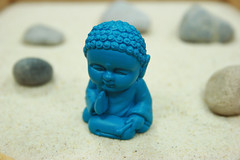As I write my Think, Try, Learn book I'm enjoying applying the TTL principles to the writing itself. As part of the meta experiment in Edison, my current experiment is try expressing the ideas in terms of reasoning from first principles. What I want to emerge are categories of ideas like: Mindset, Worldview, Framework, Skills, Principles, Practices, Values, and Artifacts.

I have two very different inspirations for this approach: The Extreme Programming Pocket Guide and Wabi-Sabi: for Artists, Designers, Poets & Philosophers. (Check out the Wikipedia articles Extreme Programming and Wabi-sabi.) Koren's Wabi-Sabi book in particular has a one-pager that's a tight and clear mind blower (see "The Wabi-Sabi Universe" below).
I'd like your advice on the first principles on which I could create a logically consistent explanation of how an experiment-driven life can make us happier. Here I'm trying to start with what Koren calls the Metaphysical Basis - the underlying natural laws of my TTL universe. I have quite a few more items than he has, and these ideas are semi-formed, but here's my stab as of today. I've picked ones that resonate for me and my logical/scientific mind, but I'd love to hear your suggestions for facts I'm missing.
- The world is constantly changing.
- Our knowledge is always incomplete.
- We are limited in what we can control.
- Attachment leads to suffering.
- We like feeling light (not too serious).
- We feel good around supporting people.
- Being present/mindful/in the moment -> happiness.
- We feel good around beauty.
- We are all different.
At a higher level:
- The only way to improve is to change something.
- We are born curious.
- Change is scary.
What do you think?
The Wabi-Sabi Universe
"Wabi-sabi can be called a 'comprehensive' aesthetic system. Its world view, or universe, is self referential. It provides an integrated approach to the ultimate nature of existence (metaphysics), sacred knowledge (spirituality), emotional well-being (state of mind), behaviour (morality), and the look and feel of things (materiality). The more systematic and clearly defined the components of an aesthetic system are - the more conceptual handles, the more ways it refers back to fundamentals - the more useful it is."
Metaphysical Basis
- Things are either devolving toward, or evolving from, nothingness
Spiritual Values
- Truth comes from the observation of nature
- "Greatness" exists in inconspicuous and overlooked details
- Beauty can be coaxed out of ugliness
State of Mind
- Acceptance of the inevitable
- Appreciation of the cosmic order
Moral Precepts
- Get rid of all that is unnecessary
- Focus on the intrinsic and ignore material hierarchy
Material Qualities
- The suggestion of natural process
- Irregular
- Intimate
- Unpretentious
- Earthy
- Murky
- Simple
 Monday, October 18, 2010 at 9:00AM
Monday, October 18, 2010 at 9:00AM 





